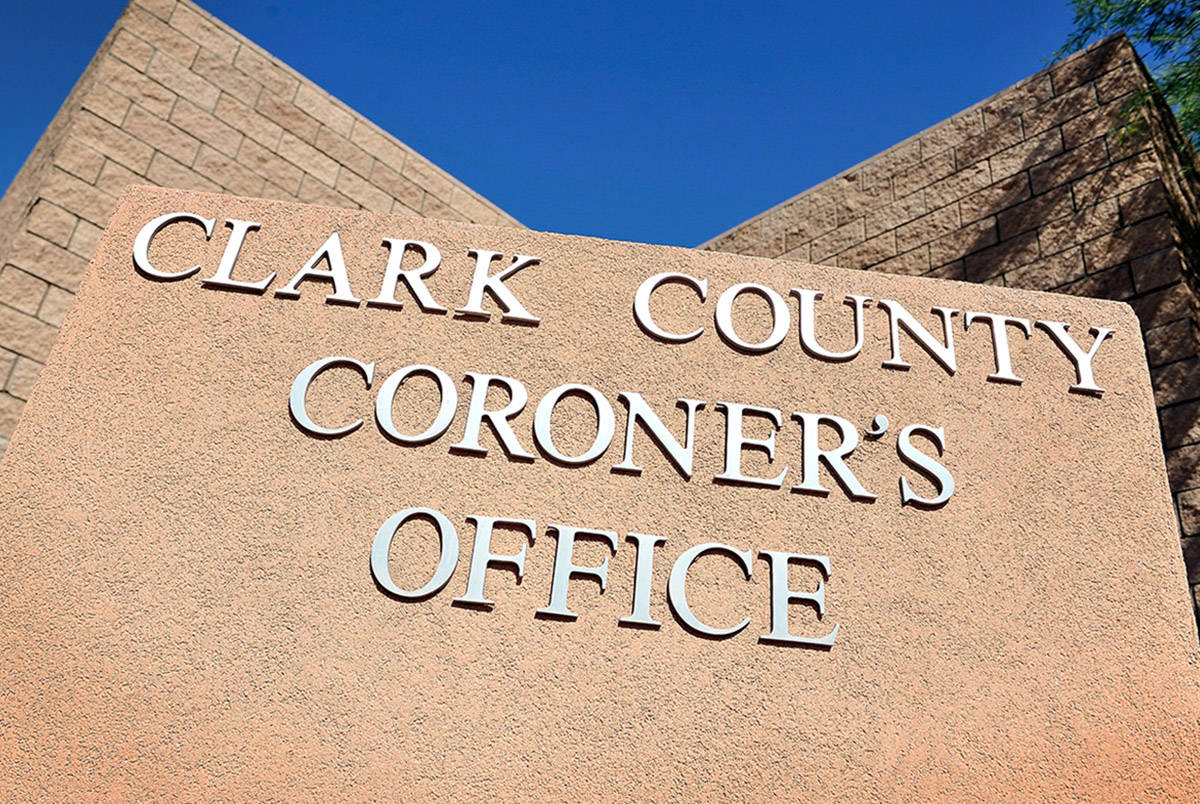Judge directs county to release unredacted autopsies to Review-Journal
The Clark County coroner must turn over hundreds of unredacted child autopsies to the Las Vegas Review-Journal by the end of November and likely pay its legal costs after a three-year battle to obtain the records, a judge ruled Thursday.
The Review-Journal has been fighting since 2017 to obtain the autopsies to determine whether the county’s child protective services are conducting proper investigations and taking appropriate actions to protect abused and neglected children.
In February, the Nevada Supreme Court ruled that autopsies are public but that the coroner can redact certain information, including medical history, if balanced against the public’s right to know.
In this case, District Judge Jim Crockett determined Thursday morning that the county did not prove any privacy concerns and must release as many as 700 requested autopsies without redaction by the end of November.
“The problem I see with the coroner’s almost glib redactions is that it is as if the coroner’s office doesn’t accept that they are a public servant,” Crockett said Thursday during a video hearing. “It’s upsetting that this type of heel-dragging has been going on in such a public records case.”
But the county, which has spent at least $80,000 in taxpayer money fighting to keep the records private, could still appeal Crockett’s ruling. County spokesman Erik Pappa on Thursday declined comment.
Review-Journal Executive Editor Glenn Cook urged the county to release the records without delay.
“The Review-Journal prevailed in this action more than three years ago, but Clark County insisted on pursuing a costly appeal for the sole purpose of hiding information of critical importance to the public interest,” he said in a statement Thursday. “It’s time for Clark County to end their appeals in this case, to stop spending taxpayer money to keep taxpayers in the dark, and to release the autopsy reports that could shed light on widespread failures of our child welfare system.”
Child protection
The Review-Journal for years has been investigating child deaths and Clark County Child Protective Services’ failure to remove children from dangerous homes, including the death of Aaron Jones, who died after being placed with his father, who had been convicted of child abuse.
Autopsy records often show prior injuries and other factors that can help determine whether the county should have removed a child before death, but the coroner’s office has argued that the records also contain private medical information.
Crockett initially said he would review all of the county’s redactions to determine whether they outweighed public interest. But when the judge found out that the coroner hadn’t redacted most of the records for review, he determined it was too late for them to assert a privacy interest when compared to the significant public interest that the Review-Journal had established.
The county’s outside counsel, Jackie V. Nichols, argued that the coroner still has a right to redact the records. But Crockett rejected that argument.
Money ruling
Crockett ruled that the county can charge 50 cents a page for the records unless they are released electronically as the Review-Journal requested. Then the coroner can charge only the cost of the CD or flash drive.
Crockett also ruled that the Review-Journal was the prevailing party in the case, which allows it to ask Crockett to award it attorneys fees and costs. Attorney Maggie McLetchie will put together a proposed order of the ruling for the judge to approve.
Crockett, who originally ruled in 2017 that autopsies are public records, said the case goes to the heart of democracy.
“This is all about the value of transparency in our government and the value of public oversight,” he said. “When a public servant, someone in government, is performing a task and is continually aware of the fact that their actions or inactions are subject to public scrutiny and they are always being exposed to the risk of being evaluated … I think that serves a very significant public interest.”
Contact Arthur Kane at akane@reviewjournal.com. Follow @ArthurMKane on Twitter. Kane is a member of the Review-Journal’s investigative team, focusing on reporting that holds leaders and agencies accountable and exposes wrongdoing.
























